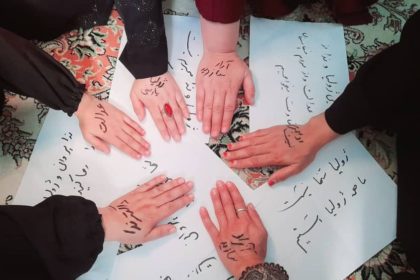RASC News Agency: In yet another chilling display of authoritarian repression, Taliban intelligence operatives have detained Moharram Ali Alamiyan a distinguished writer, political commentator, and media activist in the western province of Herat. Alamiyan was reportedly taken to an undisclosed location, and his family has since been denied any information regarding his condition, whereabouts, or the reasons for his arrest. This latest incident underscores the Taliban’s growing hostility toward intellectual freedom and its deepening crackdown on independent voices. According to close family members, Alamiyan had recently completed a Master’s degree at a university in Iran and had returned to Afghanistan with the simple intention of reuniting with his family. However, within just two hours of arriving in Herat, he was apprehended by Taliban intelligence agents and forcibly disappeared. He later managed to make a brief and heavily monitored phone call, confirming to his relatives that he had been detained but offering no further details.
Alamiyan was widely regarded as one of Afghanistan’s rising intellectuals. His sharp political and social analyses had been published across a range of media platforms, and his work resonated with readers hungry for critical engagement and truth in a country suffocating under censorship. His arrest represents not merely the silencing of a voice, but the extinguishing of a much-needed beacon of critical thought in a darkening media landscape. To date, the Taliban have issued no formal charges or justification for Alamiyan’s arrest. His family has been denied access to any legal representation or even the most basic updates on his condition. This deliberate opacity is part of a larger pattern of enforced disappearances and arbitrary detentions that has come to define Taliban rule where due process is nonexistent and state power is wielded as a tool of fear and control.
Alamiyan’s case is not an anomaly. Over the past two years, the Taliban have systematically targeted journalists, civil society actors, writers, and academics across the country. Many have been imprisoned without trial; others have vanished without a trace. These acts of repression are not isolated excesses they are calculated elements of a broader strategy to eliminate dissent and consolidate absolute ideological control over Afghanistani society. The Taliban’s brutal campaign against intellectuals and media professionals has rendered Afghanistan one of the most perilous countries on Earth for free expression. Despite its public claims to uphold Islamic values and national unity, the regime has operated more like an intelligence dictatorship, silencing every whisper of critique and criminalizing every form of independent thought.
As fear deepens and civil space contracts, Afghanistan’s once vibrant media and literary communities are being systematically dismantled. The disappearance of figures like Moharram Ali Alamiyan serves as both a warning and a symbol: a warning to all who dare speak out, and a symbol of the Taliban’s intolerance for truth. With the international community largely silent and internal resistance crushed under the weight of surveillance and violence, the Taliban’s reign continues to metastasize into a full-scale intellectual purge. The arrest of Alamiyan is not simply a violation of individual rights it is a grave assault on the very idea of an enlightened, informed, and free Afghanistan.






